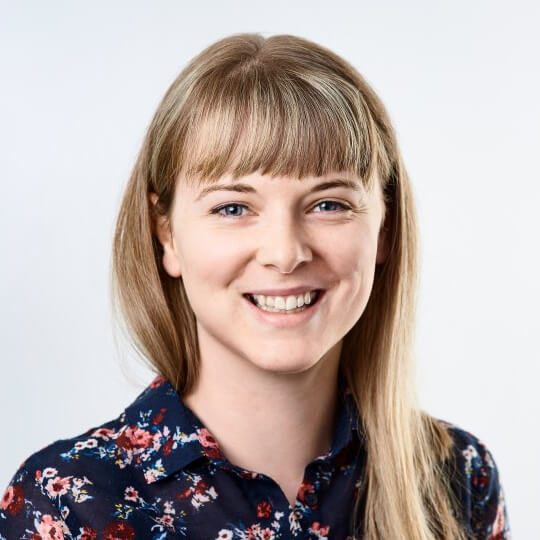Oasis Academy Skinner Street – How Dan Morrow makes a difference in the primary he attended as a child

Learn how Dan Morrow went from pupil to principal at Oasis Academy Skinner Street in Kent

- by Elaine Bennett
- Digital content manager for Teachwire and former Teach Primary magazine editor

Two years ago, Dan Morrow received a phone call from the CEO of multi-academy trust Oasis Community Learning that drastically changed his plans. At the time, he was associate principal at secondary school Oasis Academy Isle of Sheppey. “I was at the point of taking the next step into executive leadership when John Murphy called,” explains Dan. “He said, ‘You’d be very cross with me if I don’t tell you what has just happened at Oasis Academy Skinner Street’.”
Twenty miles away, Skinner Street, the primary school that Dan had attended as a child and now an Oasis academy, was in special measures and under notice for closure.
“My first thought was that this was my community,” explains Dan, who was appointed head of the school in the summer of 2015. “As a young person, a lot of my dedication, focus and determination came from wanting to escape from Gillingham, but I was called back.”
Exception to the rule
Dan grew up near to Skinner Street, and his family still lives in the area. His mother single-handedly raised Dan and his brother, working as a cleaner to support her family. “With my mum’s education and salary, life was hard,” says Dan. “Paying bills was hard. But she managed it in a way that meant we were never aware how difficult things were.”
As the only pupil in his year group to pass his 11 Plus, and later going on to study at Oxford, Dan seemed to be the exception to the rule in Gillingham. “When I took up the post at Oasis Academy Skinner Street, the biggest issue I found was around expectations,” he says.
“I remember a comment from a colleague on my very first day. She said, ‘That’s what you have to expect from Gillingham kids and Gillingham parents.’ That same day, I stood up in front of all of the staff and said, ‘Can I remind you of two things: I am a Gillingham child and my mum is a Gillingham parent.’ My mum would have been labelled a single parent, an uneducated cleaner, but both her sons went to grammar school and university. Her background, and by extension mine, may have presented a challenge, but it didn’t cast my destiny.”
“Can I remind you of two things: I am a Gillingham child and my mum is a Gillingham parent”
For these very personal reasons, Dan sees his role in the school as removing as many of those challenges as possible to provide fair access for all.
Oasis Academy Skinner Street profile
Name: Oasis Academy Skinner Street
Headteacher: Dan Morrow
Location: Gillingham, Kent
Ofsted rating: Good
Size: 300+ pupils
Extra info: nearly half of all pupils are eligible for the pupil premium
Culture change
Changing the culture of Oasis Academy Skinner Street was Dan’s first priority on arrival. He switched the areas of the school inhabited by the juniors and infants, reversing a decision taken nearly twenty years ago in reaction to a bulge class in one year group.
“People said, ‘It’s the way we’ve always done things’ but I wanted to challenge that in-a-rut thinking,” says Dan. Decluttering was also high on the agenda: “I’ve never seen so much tut in all my life,” continues Dan. “It was about signalling to everyone that it was a new day and we needed to look forward. I didn’t want to get into what had gone wrong in the past. This is a school that has been in and out of special measures for the past 15 years.”
Dan also wanted to signal to staff that he was in it for the long haul. “I’m not into quick fixes,” he explains. “Heads who are parachuted in with a clipboard and stomp around the corridors scaring children and adults alike can affect quite a bit of change, but the minute they walk out that door, that change goes with them.”
“I didn’t want to get into what had gone wrong in the past”
For Dan, it was about making changes to the school’s climate – how it feels now – in order to affect the culture – how the school would continue to feel without him.
Fundamental habits
All Oasis schools are based around nine fundamental ‘habits’ that the children are encouraged to embody, such as compassion, humility, forgiveness and hope. “The word ‘habit’ signals that they are something we can work on and improve,” says Dan. “You can say to a child, ‘You’re not a naughty boy, we just really need to work on your habits.’ For me, it goes back to resetting the culture around expectations.”
Bringing together Oasis Academy Skinner Street’s staff as one united group was another key task. “Before I arrived, the teachers and TAs hosted separate Christmas parties,” Dan says. “It was crazy!” He announced that going forward, everyone would celebrate together, including the cleaners.
“They’re our colleagues,” explains Dan. “We work in the same place, for the same reason: to give children a better opportunity. My mum was never invited to any Christmas event or seen as being part of the staff and that hurt her. For relationships to be open and healthy, they need to be genuinely equal, and that means valuing people.”
Support teachers
In a similar vein, Dan also banned the term ‘teaching assistant’. “They’re not assisting the teachers, they are teachers who are supporting the children, so they’re support teachers,” he says. After making this announcement, Dan noticed an immediate change. “I watched a group of amazing individuals stand taller and feel appreciated.”
You won’t catch the head of Oasis Academy Skinner Street silently skulking down the corridors either. “Some leaders will walk down a corridor and pass four members of staff as if they weren’t there. I’ve been that member of staff and I don’t ever want to make someone feel like that,” he says. What is his response to staff who justify this type of behaviour from heads, on the grounds of how busy they are?
“I watched a group of amazing individuals stand taller and feel appreciated”
“Stop enabling them like they’re a child,” says Dan. “Here’s the deal: if you see another adult when you’re walking down the corridor, it doesn’t matter what’s on your mind, just say hello. My job is very, very challenging in a number of ways, but I’m not running the United Nations. I work very hard but I don’t ever lose perspective on what I’m actually doing. I choose to say hello to every adult I see. It’s as basic as that.”
Community needs
The Oasis trust that Skinner Street belongs to specialises in taking on ‘difficult’ schools: “ones that most other trusts wouldn’t touch with a barge pole,” clarifies Dan. “I’m proud of that. These are our schools: the ones with high disadvantage and high community needs.”
Dan’s favoured metaphor for talking about the children in his care involves ‘invisible backpacks’. “Inside those backpacks are all the negative experiences, difficulties or challenges my students face,” he explains.
One strategy would be to ignore these external factors and simply concentrate on teaching the children what they need to know, but Dan has his doubts about that method. “That child will never be able to fully achieve until his or her self-esteem is strengthened. That has to be about identifying what’s in the backpack and removing it.”
And it’s not just the kids’ mental loads that Dan is concerned with. “We also have to understand the adults wearing backpacks. With some of our families there has been domestic abuse or crushing issues around housing. If a parent is unhappy or struggling, that will be a barrier to their child succeeding.”
On Christmas Eve, Dan found himself in the local housing office with one of his families. “I stayed there for six hours with this family, three children and their suitcases, until they got what I needed. I was not prepared to see them destitute over Christmas.”
“I was not prepared to see them destitute over Christmas”
Duty of care
A representative of the school also attends children’s paediatrician appointments at the local hospital, alongside the families. “If parents are unable to articulate what’s going on or understand what is being said to them, that becomes a barrier to providing for the children.” What would he say to headteachers who baulk at the level of social care they and their staff are expected to provide?
“That’s our duty of care. We have to have a culture of vigilance around every aspect of the child.”
In order to assist not just the students but the wider community too, Oasis Academy Skinner Street has a community hub where classes for adults take place. “We run sessions based around CV skills, parenting and supporting homework,” Dan explains. “We’re really helping to educate parents on how they can support their children.”
Incredible parents
More than 20 parents have voluntarily taken part in a programme of study devised by the school. “It’s part work experience and part reading, plus some functional skills assessment,” says Dan.
“At the end of that, they can put us as a reference, build their confidence and move on. The other benefit is that it improves their parenting. Ultimately, there are very few parents who don’t want to be good and do their best. We’ve got an incredible set of parents in this area, they just need to believe that.”
Although he’s passionate about helping his community, there is one thing Dan is keen to point out.
“Ultimately, there are very few parents who don’t want to be good and do their best”
“I’m not a patriarch. I’m not the ‘father’ of the community or any of that misogynistic nonsense. I may have had different experiences in life than them, but I can empathise. I have an unbelievable and unique advantage because I am from here and the community knows my story.
“Without being twee about it, they are proud of me. This is an area that is talked about in a certain way, but I’ve got a really strong desire to see people talking about Gillingham with pride. I want people to be proud of the fact that they are from a challenging area but that it hasn’t affected who they are. Things may be a bit harder, but they’re still possible.”
Bigger picture
Being part of a large multi-academy trust has one major benefit according to Dan, and that’s improved organisation. “I don’t need to spend my time trawling the DfE or Ofsted to find out what I should be doing when. Oasis has its finger on the pulse, which means I feel much more secure and don’t lose sleep. I forward lots of releases from Oasis to other heads in this area just to check they know about things.”
Dan noticed that many of the heads in the Medway district were working in isolation, so decided to set up the Medway Association of Primary Headteachers to enable and encourage the sharing of best practice.
“I want to set systems up because I believe that will have an amazing impact on the children. In primary leadership the biggest worries are always anxiety around results, budget, staffing, and the fear that you don’t know something that you should. There’s always a nagging doubt that someone else is doing it better somewhere else.”
The association encourages local schools to share data to improve outcomes for everyone, rather than having a mindset of competitiveness.
“Together we will achieve more. If we don’t provide school-to-school support and see ourselves as the leaders of school improvement, no one else is going to do it. We don’t need civil servants to make the changes – we understand the pedagogy, but we also understand the practice that will deliver transformation. What has been lacking in Medway is organisation and leadership, but people’s heart and soul has never been in doubt.”
A safe space
Something else not in doubt is the dedication of the staff at Oasis Academy Skinner Street. “It gets to seven o’clock in the evening and I have to kick them all out,” says Dan. The school runs additional lessons for Y5 and 6 students during school holidays and the annual Y6 trip also takes place outside of term time.
“My staff have given more discretionary time than I can ever tell you about,” says Dan. “They don’t get paid for it. It’s all freely given. I am blessed to lead this staff.” Teachers recently organised a community night to raise funds for the family of a pupil whose mother is dying of cancer. “It isn’t just about driving the children academically, it’s also about making sure the whole community knows that we are a safe place,” explains Dan.
“My staff have given more discretionary time than I can ever tell you about”
“I would recommend to any secondary headteacher that they spend some time leading primary schools because it is the most humbling, honest form of leadership. I am surrounded by adults who put others first and lead by example. My commitment or impact is no greater than any of theirs. They are amazing and I am very, very lucky.”
Looking forward, Dan’s number one wish is to add nursery provision. “I want the children younger and earlier – prevention is better than cure.”
He’s also keen for the school to feel settled. “We’ve had all the flux of change and improvement. Now I want the sense of security that comes from being a very good school. It’s not about getting to outstanding, it’s about knowing that we’re giving outstanding opportunities to children. I want my students to walk through the door each and every day knowing they are loved.”
Reducing exclusions
Over the last year, Skinner Street has had the largest reduction in exclusions in Medway. “I’m working with a community that already has a huge sense of exclusion,” says Dan. “How can I improve the children’s sense of identity and belonging if they keep hearing ‘You’re excluded’?”
Instead, Dan implemented a new strategy to deal with poor behaviour, particularly among white British boys. Instead of being sent home, misbehaving students were asked to stay at school with Dan until 6pm.
“Having a male to talk to meant it became more like a mentoring session than a sanction. Some of the boys – even when they were behaving – were still asking to stay late. This showed me that I needed to concentrate on extra resources for these boys, focusing on self-esteem and appropriate role models.”
Dan sees the poorest behaviour on Mondays and Fridays and puts it down to the frustration children feel when dads haven’t picked them up or have broken promises about weekend plans. “On a Monday morning you see boys walking through the door emotional and frustrated. I’m not going to punish a seven-year-old distraught about the fact that he thinks his dad couldn’t care less about him.
As difficult as it is, there is a compliment in the fact that he’s calling us rude names, because he knows that we are not going to reject him. We might be the only adults in his life that haven’t rejected him.”
Pupil voice

Liam:  When I was in Y3 there was a tiny playground but Mr Morrow got rid of the car park and made it gigantic. Now we can play games in a bigger, better space. Our teachers have sorted out lots of trips for us.
When I was in Y3 there was a tiny playground but Mr Morrow got rid of the car park and made it gigantic. Now we can play games in a bigger, better space. Our teachers have sorted out lots of trips for us.

Paul:  Since Mr Morrow came to this school he has helped us a lot. He made a breakfast club. In the morning you can go there and get breakfast and you don’t have to pay money for it.
Since Mr Morrow came to this school he has helped us a lot. He made a breakfast club. In the morning you can go there and get breakfast and you don’t have to pay money for it.

Vaya:  The nine habits help us. If you are getting stressed, you have to keep your temper down, which is self-control. If someone takes too long, you have to use patience. The most important part is to be happy.
The nine habits help us. If you are getting stressed, you have to keep your temper down, which is self-control. If someone takes too long, you have to use patience. The most important part is to be happy.

Joy:  If you progress in your learning and do well, you move up the behaviour chart. When you get to gold you get a certificate. If you move down it means you’re not behaving in the Skinner Street way.
If you progress in your learning and do well, you move up the behaviour chart. When you get to gold you get a certificate. If you move down it means you’re not behaving in the Skinner Street way.
Meet the staff

Angie Young, Director of Literacy:  I’ve been here 19 years. My children came here. The community is a lot of EAL and one-parent families. We’ve got a bigger sense of community now which Dan has encouraged. We’re now teaching children of the parents that I used to teach. The school is back up where it should be and families have begun to trust us again like they did years ago.
I’ve been here 19 years. My children came here. The community is a lot of EAL and one-parent families. We’ve got a bigger sense of community now which Dan has encouraged. We’re now teaching children of the parents that I used to teach. The school is back up where it should be and families have begun to trust us again like they did years ago.

Paul Sharpe, Deputy Principal:  Working in a difficult community brings out the best in teachers. It’s not called a vocation for nothing. People step up when there is need, and there’s certainly need here. If we’re not all standing together as a team we’re not going to have an impact. We couldn’t do what we do if there wasn’t that sense of family. I can genuinely say that there are no cliques here – people work together.
Working in a difficult community brings out the best in teachers. It’s not called a vocation for nothing. People step up when there is need, and there’s certainly need here. If we’re not all standing together as a team we’re not going to have an impact. We couldn’t do what we do if there wasn’t that sense of family. I can genuinely say that there are no cliques here – people work together.

Lauren Weeks, EYFS & Y1 Leader:  You can’t get everything done in the hours that people expect teachers to work. I think if we don’t put in that extra time we are failing our students. When you go to university and do your first placement, you know you’ve signed up to do long hours. At my old school I would stay late but the children didn’t need us as much as they need us here.
You can’t get everything done in the hours that people expect teachers to work. I think if we don’t put in that extra time we are failing our students. When you go to university and do your first placement, you know you’ve signed up to do long hours. At my old school I would stay late but the children didn’t need us as much as they need us here.

Dan Morrow, Principal:  The staff volunteered to give up their staffroom so we could have a library, because we’d never had one. They also volunteered to give up their car park because it was taking up half of the playground. They said it should be for the children. Since I’ve been here, the staff have given up so many of the aspects that people say makes somewhere ‘good’ to work, but they love their jobs.
The staff volunteered to give up their staffroom so we could have a library, because we’d never had one. They also volunteered to give up their car park because it was taking up half of the playground. They said it should be for the children. Since I’ve been here, the staff have given up so many of the aspects that people say makes somewhere ‘good’ to work, but they love their jobs.










